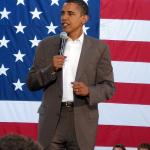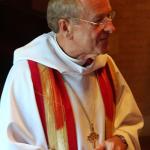For some reason, I had occasion recently to come back to a piece on the 2008 presidential election by David D. Kirkpatrick for the New York Times Magazine (Oct. 28, 2007). It was called “The Evangelical Crackup.”
Here are a few poignant observations from eleven years ago:
The generational and theological shifts in the evangelical world are turning the next election into a credibility test for the conservative Christian establishment. The current Republican front-runner in national polls, Rudolph W. Giuliani, could hardly be less like their kind of guy: twice divorced, thrice married, estranged from his children and church and a supporter of legalized abortion and gay rights. Alarmed at the continued strength of his candidacy, Dobson and a group of about 50 evangelical Christians leaders agreed last month to back a third party if Giuliani becomes the Republican nominee. But polls show that Giuliani is the most popular candidate among white evangelical voters. He has the support, so far, of a plurality if not a majority of conservative Christians. If Giuliani captures the nomination despite the threat of an evangelical revolt, it will be a long time before Republican strategists pay attention to the demands of conservative Christian leaders again. And if the Democrats capitalize on the current demoralization to capture a larger share of evangelical votes, the credibility damage could be just as severe.
“There was a time when evangelical churches were becoming largely and almost exclusively the Republican Party at prayer,” said Marvin Olasky, the editor of the evangelical magazine World and an informal adviser to George W. Bush when he was governor. “To some extent — we have to see how much — the Republicans have blown it. That opportunity to lock up that constituency has vanished. The ball now really is in the Democrats’ court.”
If evangelicals could not countenance the former mayor of New York City, how were they feeling about George W. Bush?
Every time I visited an evangelical church in 2004, it seemed that a member’s brother or cousin had just returned from Iraq with reports that much greater progress was being made than the news media let on. The admiration for President Bush as a man of faith was nearly universal, and some talked of his contest with John Kerry as a spiritual battle. It would have been hard to overstate the Christian conservative leadership’s sense of the presidential race’s historical significance. In the days before the election, Dobson told me he believed the culture war was “rapidly approaching the climax, with everything that we are about on the line” and the election might be “the pivot point.”
The morning after the Republican triumph, a White House operative called Dobson to thank him personally for his support, as Dobson told me in conversation later that day. He bluntly told the operative that the Bush campaign owed his victory in large part to concerned Christian voters. He warned that God had given the nation only ”a short reprieve” from its impending ”self-destruction.” If the administration slighted its conservative Christian supporters, most importantly in filling Supreme Court vacancies, Dobson continued, Republicans would “pay a price in four years.”
On that front, at least, Bush has not disappointed. President Bush’s two appointees, Chief Justice John G. Roberts Jr. and Justice Samuel A. Alito Jr., have given Dobson and his allies much to be thankful for. Nor has Bush flinched from any politically feasible Christian conservative goal, even when it has been unpopular. He has blocked federal financing for embryonic stem-cell research and intervened to help keep Terri Schiavo on life support. But of course there were moments when the White House seemed to care more about Social Security reform, and in the end the culture did not change.
Today the president’s support among evangelicals, still among his most loyal constituents, has crumbled. Once close to 90 percent, the president’s approval rating among white evangelicals has fallen to a recent low below 45 percent, according to polls by the Pew Research Center. White evangelicals under 30 — the future of the church — were once Bush’s biggest fans; now they are less supportive than their elders. And the dissatisfaction extends beyond Bush. For the first time in many years, white evangelical identification with the Republican Party has dipped below 50 percent, with the sharpest falloff again among the young, according to John C. Green, a senior fellow at Pew and an expert on religion and politics. (The defectors by and large say they’ve become independents, not Democrats, according to the polls.)
One way to slice this snapshot of evangelicals and politics is to see how the Iraq War, U.S. foreign policy, and Donald Trump’s apparent willingness to go a different way in international affairs made up for his character flaws (or downright wickedness). After all, George W. Bush was born-again and a good guy but look at what his administration did.












